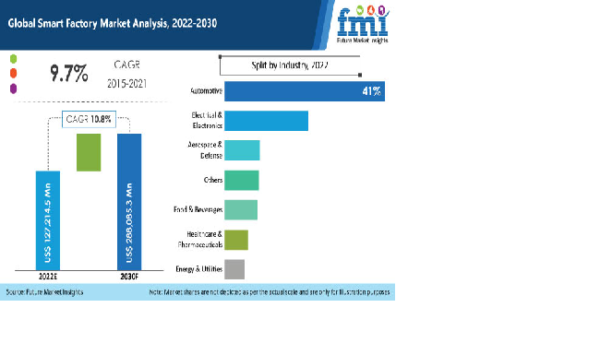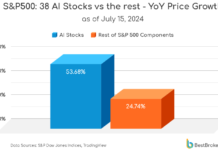
The worldwide coronavirus (COVID-19) pandemic has triggered considerable downturn across industries, particularly smart factory market. Deployment of smart technologies could be beneficial in breaking the pattern of the virus. However, massive slowdown in the manufacturing sector, especially in Asia, has strained economic activities across various industrial domains.
These factors are constantly putting pressure on smart factory market and would adversely affect the market supply chain.
· Software demand will grow at a significant CAGR throughout the forecast period.
· Among software components, distributed control systems hold a leading market share as they are widely used in factories for monitoring and controlling various processes.
· Discrete industry remains key revenue generator in smart factory market and would maintain the trend through 2030.
· Business partnerships help increase revenue, and new innovations in IT domain are enabling smart factory solution providers reach new potential customers, globally.
To sustain extreme competition, a majority of companies are adopting data-driven technologies such as Big Data analytics, intelligent automation, AI, and sensor technologies. Data-driven technologies offer an opportunity in transformation of existing manufacturing paradigm to smart manufacturing. Further, they empower companies to craft new strategies to gain leading edge.
Industry 4.0 and Technological Advancements Boost Adoption of Smart Technologies
Advantages such as cost efficiency and enhanced productivity have led to upsurge in adoption of smart factory technologies. In addition, technological advancements have diminished the boundaries between the digital (cyber) and physical factory infrastructure. Intelligent interconnected systems seamlessly support activities along the entire value chain in factories.
Governments worldwide are promoting and supporting the Industry 4.0 revolution. Further, they are encouraging entrepreneurs and small & medium enterprises (SME) to create innovative products by using robotics, AI and big data analytics.
A comprehensive view of the smart factory market reveals that the market is escalating at a significant rate owing to growing demand for real-time analytics to deliver personalized ads.
Smart factory market in regions such as East Asia and Europe is anticipated to grow at high rates during the forecast period, owing to increased adoption of smart factory solutions and tools across various industries. Alliances with other providers, along with regional expansion, are some strategies opted by key players in these regions to fuel market growth.
Witnessing stupendous growth in the recent past, smart factory projects have been performing well on the back of rising adoption of analytics and cyber security tools. The global smart factory market value surpasses US$ 127.2 Bn in 2022. A new ESOMAR-certified market research and consulting firm study has projected a solid double-digit growth for the market during forecast period, 2022 – 2030.

















